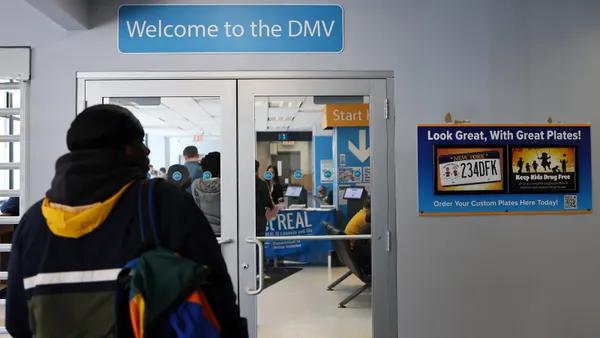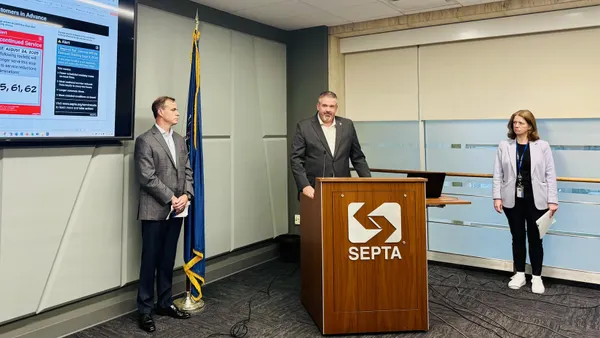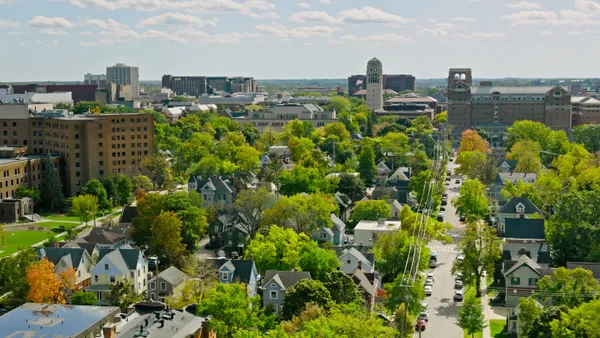Editor's note: This article was originally published in American City & County, which has merged with Smart Cities Dive to bring you expanded coverage of city innovation and local government. For the latest in smart city news, explore Smart Cities Dive or sign up for our newsletter.
Rental assistance programs are on the chopping block in the Trump administration’s proposed fiscal 2026 budget, which seeks to cut around $33 billion from the Department of Housing and Urban Development, 20% of the budget’s $163 billion in cuts to non-defense spending.
The largest proposed HUD-related cuts — $25.7 billion — were to rental-assistance programs, including tenant-based rental assistance, public housing, project-based rental assistance and housing for the elderly and persons with disabilities. The proposed budget called such programs “dysfunction” and said they would be transformed into state-based formula grants for states to design their own rental-assistance programs.
The budget also calls for cutting the Community Development Block Grant, which provides formula grants for 1,200 state and local governments, asserting that the program “is better funded and administered at the state and local level.”
Also eliminated in the budget is the Home Investment Partnerships Program grant, which aids states and local governments in expanding housing supply.
“The federal government’s involvement increases the regulatory burden of producing affordable housing,” the proposed budget states. “State and local governments are better positioned to address comprehensively the array of unique market challenges, local policies and impediments that lead to housing affordability problems.”
The proposed HUD cuts come as the nation experiences record homelessness, as well as a continued housing affordability crisis.
Andrew Ginther, president of the United States Conference of Mayors and mayor of Columbus, Ohio, said the cuts to federal housing and development programs “would be devastating.”
“We have a raging housing crisis unfolding in America, and this budget would only deepen it,” Ginther said in a statement. “These programs have long had broad bipartisan support because the lack of housing impacts every corner of our country, every political persuasion and every rung of the socioeconomic ladder.”
During a National League of Cities Congressional City Conference held earlier this year, city leaders listed housing shortages and affordability issues as a top concern.
HUD Secretary Scott Turner said Trump’s proposed budget provides “greater flexibility” for states and local governments to address affordable housing while “streamlining and simplifying” existing programs.
“It creates the opportunity for greater partnership and collaboration across levels of government by requiring states and localities to have skin in the game and carefully consider how their policies hinder or advance goals of self-sufficiency and economic prosperity,” Turner stated in a press release.
The proposed budget, which is ultimately up to Congress, includes $25 million in housing grants for young people aging out of foster care. It also installs a two-year cap on rental assistance for “able-bodied adults.”










